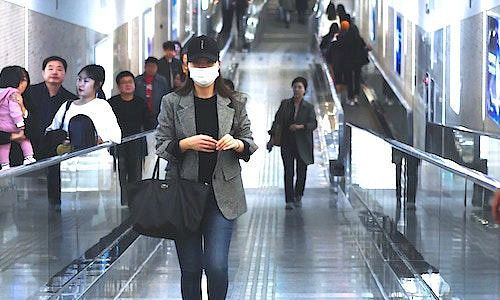Banks Talk Wuhan Virus
Global banks discuss their views about the Chinese government’s response to the coronavirus outbreak as well as its potential near-term effect on markets.
The coronavirus outbreak continues to escalate, having afflicted more than 500 people worldwide. 18 deaths have been confirmed including the first case outside of Wuhan earlier today. Chinese authorities have named it a top national priority to tackle the matter with a commentary issued by the Central Political and Legal Affairs Commission saying that any official deliberately hiding or delaying related information will be «nailed to the pillar of shame for eternity».
Thus far, China’s response has yielded applaud from the banking sector which highlighted greater proactivity and transparency, especially when compared to the SARS outbreak of 2003.
Better Than SARS Response
Global bank’s positive view towards China’s recent response was made in contrast to its previous efforts during the SARS outbreak which infected more than 8,000 people and claimed the lives of nearly 800. At the time, U.N.’s global health body had criticized China’s management of the outbreak, specifically citing the lack of transparency as a major issue.
«History does not repeat itself, but it rhymes. More importantly, China has learned lessons from Sars,» according to a research note by Wang Tao, head of Asia economic research and chief China economist at UBS’s investment banking arm. «The government is now working much more proactively and transparently to contain the Wuhan pneumonia than [it did with] Sars, and China’s public health system is now more experienced than before as well.»
«The evolving situation has brought some uncertainty to China’s near term growth outlook. However, Chinese authorities have been more responsive and transparent this time,» said according to a note from BNP Paribas Wealth Management’s chief investment office. «With faster medical and public health measures being taken to limit transmission and to develop treatments, the overall impact may be less severe than SARS but it is still very uncertain at this stage.»
Home Shopping
China’s retail sector will undoubtedly be impacted by the ongoing outbreak but newly emerging consumption trends could act as tailwinds to offset losses.
Wendy Liu, a China strategist from UBS’s investment bank, said that hotel operators will be «significantly affected» while retailing, parks and movie theaters will see less seasonality-driven benefits from Chinese New Year. Food deliveries, video streaming services and e-commerce could marginally benefit in the near term, she added.
«The consumption pattern in China has changed quite dramatically over the past 20 years,» said Goldman Sachs’s chief equity strategist Kinger Lau. «Definitely, people travel more, but a lot more consumption activities are now being conducted online. You don’t really have to go out to spend money. You can just do it online.»
When Will it be Over?
According to BNP Paribas, the life cycle of SARS was considerably short-lived at seven months and led to limited economic and market disruption. China grew just 3.5 percent in 2Q03 after posting 12 percent growth in 1Q03 but ultimately closed 2003 with a strong 10 percent increase. The Hang Seng Index and MSCI China also experienced sharp drops during the period by had recovered all losses by 2H03.
«[But] whether the current virus will follow a similar trajectory is a question mark,» the bank said.
Similarly, Goldman Sach’s chief APAC equity strategist Timothy Moe underlined greater global connectivity compared to 2003 as a risk factor for transmission making the matter all the more unpredictable.
«What makes this concerning and hard to handicap is that nobody really knows exactly how this is going to turn out, which really is why it’s that proverbial black swan,» Moe said, in an «SCMP» report. «There certainly are reasons to be concerned, just citing the already published facts, which is that it’s now seen to be communicable between humans. We’ve seen how these things can propagate.»


























